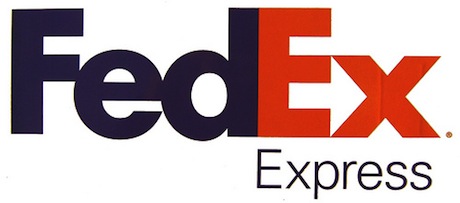Chinwag Psych Interview: Nathalie Nahai, "Subliminal Success - The Psychology of Sales."
The Chinwag Psych conference is coming on May 9. Selected experts will be presenting talks on neuroscience, psychology and big data for business.
If you’re not sure why this event is for you, we have a Quick and Dirty Primer. The speakers are key, and they include Web Psychologist, Nathalie Nahai.
Nathalie recently published her book, Webs of Influence , a guide to discovering secret strategies that make us click.
Since its release she has been outlining why thoughtful design and marketing goes a long way.
A Gap in the Market
 While researching the book, Nathalie spotted many useful research papers across various academic fields. Persuasive technology, human-machine interaction, behavioural economics and cross-cultural psychology all have a role.
While researching the book, Nathalie spotted many useful research papers across various academic fields. Persuasive technology, human-machine interaction, behavioural economics and cross-cultural psychology all have a role.
“The thing that was lacking was something that brought all of this together,” she explains. “That's where I saw the opportunity for the book and where I thought we could benefit the most from someone who could say ‘this is an indication of the areas we need to look at if we're going to be more persuasive and smarter in the way that we construct our businesses online’”.
Is there a trick you are missing on your site? Simple changes could help an audience engage and Nathalie has spotted more than a few great examples.
“Businesses use subliminal cues to get people to respond in different ways,” she told Chinwag. “There is a really interesting case study that illustrates the power of design - the arrow in the FedEx logo.”
You might have noticed the arrow in the negative space in the lettering of the FedEx logo. Look at the image between the E and the X. She points out that the arrow points from left to right in countries that write in this way and the opposite direction in countries that write in the opposite direction, like Arabic.
“This taps into concepts of time and speed,” she says. “In the UK and Western countries, arrows that point 'forward' point left to right because this is how we see the future. In a room full of people, if you say 'Point to the future’, that's the direction they will point. And if you do this in Arabic countries it’s the reverse".

Online businesses can internationally (depending on Web restrictions in your region), but does this mean that every company should be working on cultural differences like the FedEx design?
Nathalie says it comes down to planning and purpose. “How much you need to worry about that depends on how much you want to grow into those markets. With websites in Germany ending in .de or in Russia ending in .ru, it's unlikely that we would go to seek out these specific sites unless there was something specific you were looking for. I think it is important to have an understanding of your target market. If you find it to be diverse, then build that into your strategy. It's always about testing first.”
Smart Companies Understand Psych
Testing can be a challenge for businesses. Sifting information can be a big task. This is one of the reasons why Nathalie believes having a psychologist on your books could be a clever idea.
“The smart companies are employing psychologists”, she says. “If you look at businesses like PWC, Deloitte and Virgin, a lot of them are developing behavioural sciences units or teams.
“There's not enough of it going on though. It takes time for people to realise that actually their whole business model or research model is not performing nearly as well as it should be based on the fact that they don't know how to use these insights or that they need these insights.
“I think its going to be a while before we start to see people use this on a big scale. It is already in the air and people are starting to think about it a bit more and they really need to think about integrating this into their campaigns”.
Not So Rational Thinking
Smart business practice and good design can be harder because we tend to believe that people are rational thinkers, so the clear and appropriate choices we make for them must work, right? Not quite.
“The main battle we face when you want to help people realise that we are not rational is convincing them of that fact. We all like to think we are rational. In the West there is a bias toward logical, provable, quantifiable things and when you talk about human behaviour, this is often based on human behaviour and what people do not what they think or say they do.”
To explain the point, she brings up a common example: the perception of value. If something is priced .99 or .98, we'll think it is cheaper than something that is a whole figure like £5.00.
“You can experience it for yourself,” says Nathalie. “When people work this out we can then point out some of the things they need to watch out for and create a road map for the pitfalls and potential areas where they can leverage some of these weird heuristics. This way they can get people to do some of the things they want and nudge them in particular directions.”
Areas of influence can include numbers, the types of images and colours used on a website, the language that is chosen or whether it is necessary to have pictures of people endorsing a product. There are situations where some things work and other things will not.
According to her, different psychological principles work on different pages and in some cases two might work together (if they don’t conflict). The baseline of course needs to be planning and working out specific goals. From there, the right methods of influence can be applied to make a site more persuasive.
It’s clear that psychology is important in business. Nathalie explains why you should be considering insights from those who have an understanding of why we do what we do.
“If you are running a business, you are necessarily dealing with humans. If you don't understand what makes them click, you've got no hope in hell in succeeding on any meaningful level just because you don't understand what you're working with."
“Psychology and the behavioural sciences give us the tools and insights that we need in order to create more sustainable, effective and engaging businesses that can create better impact than we would otherwise if we had a very limited amount of knowledge about how we work.“
Of course to find out more from Nathalie, one of the smart decisions you can make is to come and see her presentation at Chinwag Psych. It could be a sign of positive behaviour for your business.
// Grab yourself a ticket right here.
Photo (cc) ky_olsen, cmonville & Ikhlasul Amal.






